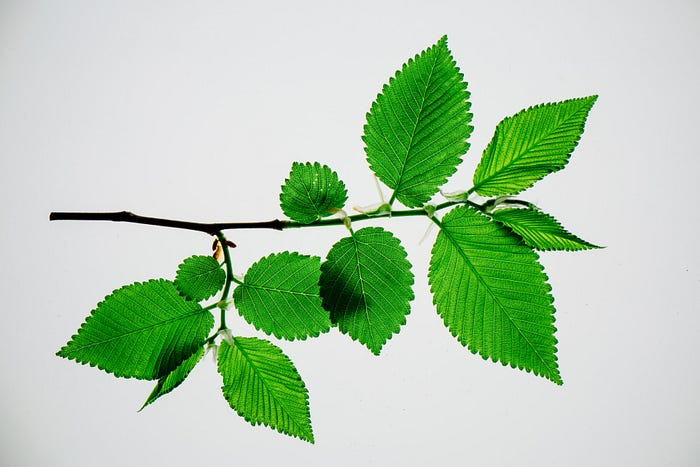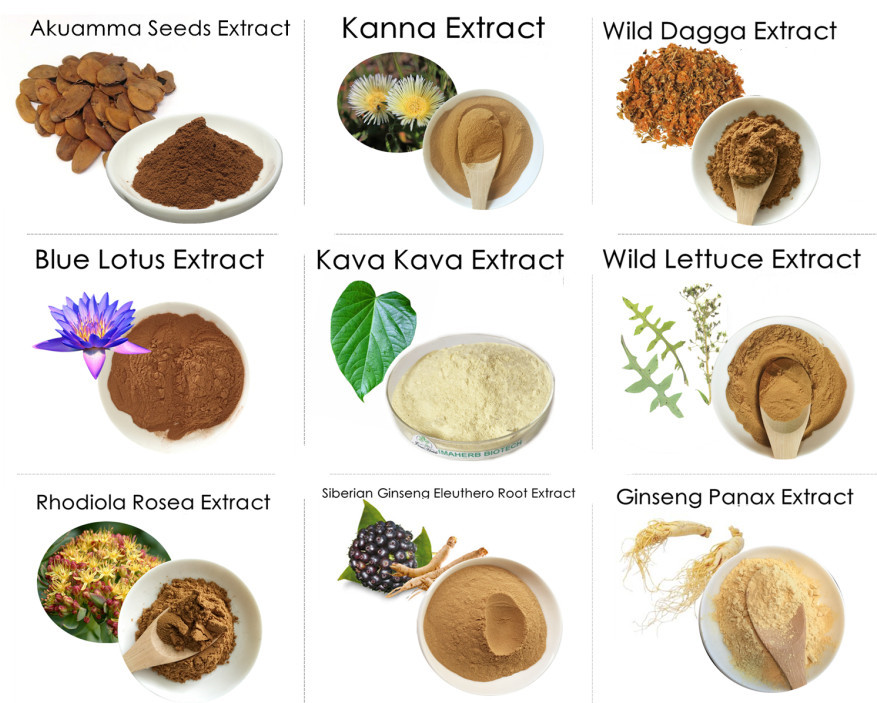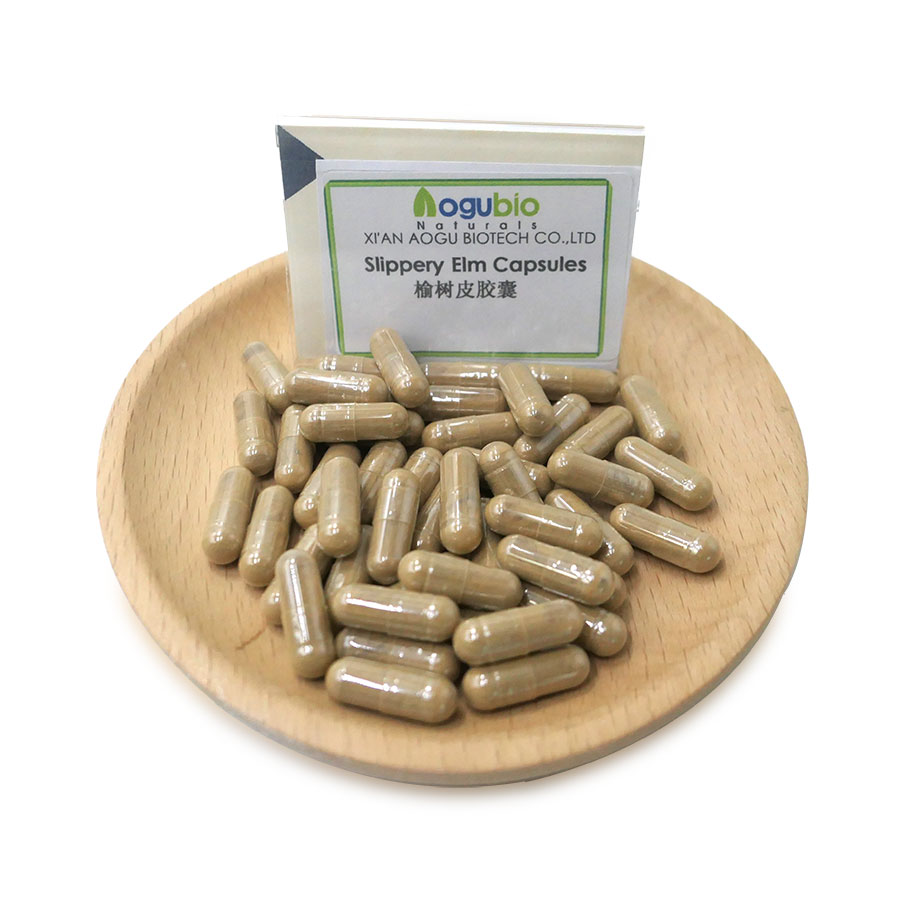What’s Slippery Elm Extract?
Slippery elm (Ulmus rubra) is a tree that is native to North America. Its inner bark feels slippery when chewed and may be effective for soothing sore throat.
Only the inner bark of slippery elm, not the whole bark, is used as medicine. The inner bark contains chemicals that can increase mucous secretion, which might be helpful for stomach and intestinal problems.
People use slippery elm for sore throat, constipation, stomach ulcers, skin disorders, and many other conditions, but there is no good scientific evidence to support these uses.

Uses of Slippery Elm
Supplement use should be individualized and vetted by a healthcare professional, such as a registered dietitian, pharmacist, or healthcare provider. No supplement is intended to treat, cure, or prevent disease.
Slippery elm might be useful in treating certain health conditions, but more research is needed.
In traditional medicine, slippery elm is believed to be able to treat various health conditions when taken by mouth or applied to the skin.
Possible uses for slippery elm include:
- Skin conditions
- Sore throat
- Constipation
- Stomach ulcers
- Gastrointestinal symptoms
What Are The Benefits Of Slippery Elm?
Wondering what slippery elm is good for? The glue-like secretions effectively control disorders of the GI tract. Slippery elm may also help treat a sore and itchy throat, diarrhea, and other inflammatory conditions. Check out the benefits of slippery elm for women below.

- Relieves Gastrointestinal Esophageal Reflux Disease (GERD)
GERD arises when the muscles (sphincter) at the junction of the food pipe (esophagus) and stomach get inflamed. This causes the stomach acids to flow back into the esophagus, giving you a heartburn.
You may also experience severe acid reflux and a burning sensation in your gut and chest. Such cases need medication that relaxes the sphincter muscles and tones down the inflammation present. Remedies incorporating herbs like slippery elm have shown great relief .
Slippery elm can be combined with marshmallow to make cold infusions or a water-based gruel . Mix 1-2 tablespoons of the elm’s powder in a cup of water and take it after meals and before bedtime. Such mixtures work as demulcentsi to soothe inflamed gut muscles .
- Eases Sore Throat, Cough
Native Americans used tea made from the inner bark of this herb to heal sore throats, coughs, mouth ulcers, and inflammation of the pharynx (pharyngitis). Slippery elm is often found in lozenges, softgels, and cough medications .
Its mucilage soothes throat inflammation caused due to flu, allergies, or infections. Slippery elm stimulates the cell lining of your throat to produce more mucus.
Elm extracts have flavonoids, quinones, alkaloids, triterpenes, and polyacetylates, which are responsible for this demulcent effect .
- Manages Irritable Bowel Disease (IBD)
IBD describes two distinct chronic conditions: ulcerative colitis (UC) and Crohn’s disease (CD). UC primarily affects the colon, whereas CD may involve any portion of the GI tract from the mouth to the anus. These conditions make IBD extremely debilitating .
The antioxidants and anti-inflammatory agents from alternative herbal medicine have effectively controlled its severity. Slippery elm, tormentil, Mexican yam, licorice, aloe vera, and curcumin are a few options that have been successfully tested in this regard.
Most of these ingredients, including slippery elm, exhibit potent antioxidant activity. They scavenge the free radicals produced by inflamed gut cells. Colon biopsies from patients with UC show reduced free radical release after this herbal treatment .
- May Control Psoriasis
Psoriasis is a chronic skin disease characterized by sharply defined, red patches covered with a silvery, flaky surface. What causes this condition is still unclear. Weather, stress, and genetic factors may make people susceptible to psoriasis.
Since there’s no known cure yet, modern research is trying to improve the quality of life in these patients. Ancient medicine prescribes the use of anti-inflammatory herbs, including chamomile, aloe vera, slippery elm, flaxseed oil, tea tree oil, and turmeric to deal with psoriasis. Slippery elm may hydrate your skin.
The elm may also prevent the psoriatic patches from itching and chafing. That’s why yellow saffron and slippery elm herbal infusion/tea has shown positive outcomes in several studies.
- Improves Diarrhea And Constipation
A tea brewed from the inner bark of slippery elm was used as a laxative by the Native Americans. It is also a diuretic, thereby increasing water and salt excretion from your body. These properties may help one deal with constipation and hemorrhoids.
This plant tones down gut inflammation. Having its infusions controls diarrhea, as per ancient medicine and recent research.
Dilute one teaspoon of slippery elm powder/extract in warm water. Mix well and drink at room temperature for relief.
- Treats Wounds, Cuts, And Bites
The mucilage in slippery elm is used to treat skin ailments. The bark is powdered to make poultices. It is said that settlers, tribes, and soldiers used these poultices to treat wounds, cuts, boils, and insect bites . Hence it is efficient for wound healing.
It acts as an emollient by smoothening and softening your skin. The slippery elm mucilage quickly swells into a gooey mass when mixed with water. It can, therefore, work on dry or mildly inflamed skin .
How To Take Slippery Elm

Take 1-2 tablespoons of slippery elm bark powder in a glass of water after meals and before bedtime. This could soothe GERD and other related gastric troubles.
You can find dried slippery elm bark powder easily on the market. This powder can also be added to your tea while brewing.
This herb is available as capsules, lozenges, and cream/ointment. You could also find unprocessed shards of its inner bark.
But is it safe to take slippery elm every day, given its wild origin? Are there any risks linked to its intake?
Post time: Sep-15-2023




